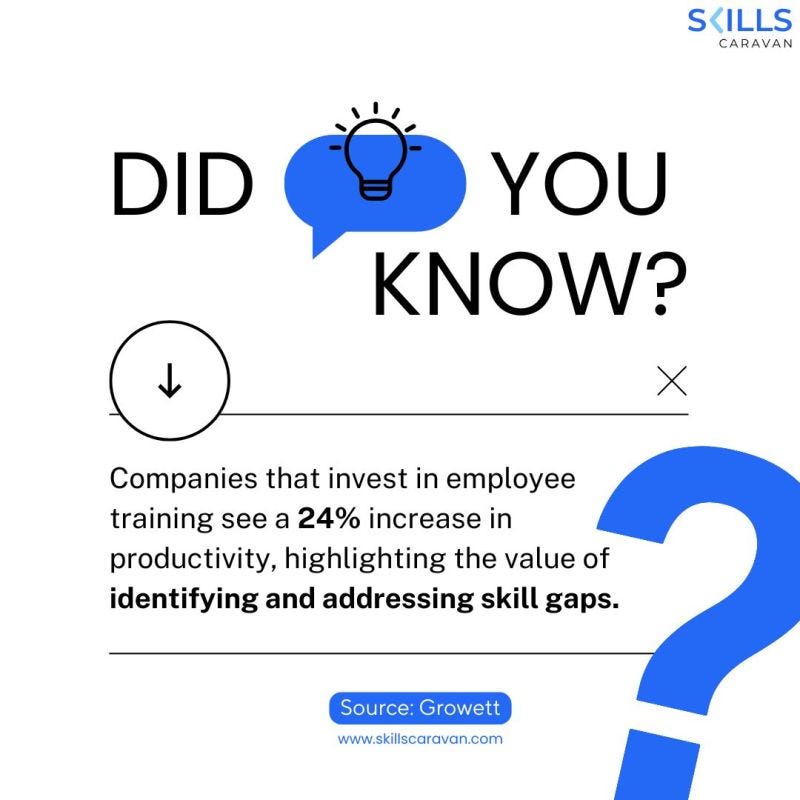Top 7 Upskilling Strategies to Accelerate Business Growth in 2025
As we move deeper into the digital age, businesses are under more pressure than ever to adapt, innovate, and grow. The year 2025 is expected to bring rapid technological advancements, changing consumer behaviors, and new market dynamics. In such an environment, one of the most powerful levers for accelerating business growth in 2025 is upskilling.
Upskilling refers to the continuous learning and development of employees to keep up with evolving roles, technologies, and industry demands. Organizations that prioritize upskilling today are laying the foundation for sustainable and scalable success tomorrow. This blog explores the top 7 upskilling strategies that will play a critical role in driving business growth in 2025.

1. Embrace Digital Literacy Across All Roles
Digital transformation is no longer a luxury — it’s a necessity. For business growth in 2025, companies must ensure that all employees, not just IT teams, are digitally literate. This means familiarity with collaboration tools, data analytics platforms, cloud-based systems, and AI-driven technologies.
How to implement:
- Run company-wide training on productivity tools (e.g., Slack, Microsoft Teams, Google Workspace)
- Offer certification courses on AI, data literacy, and cybersecurity
- Encourage a culture of digital-first thinking
2. Develop Leadership and Soft Skills for the Future
As automation and AI handle more technical tasks, human-centric skills like leadership, emotional intelligence, adaptability, and strategic thinking will be the real differentiators. Companies that invest in leadership development at every level will be best poised for business growth in 2025.
How to implement:
- Launch leadership academies or in-house mentorship programs
- Include soft skills training in performance development plans
- Focus on conflict resolution, communication, and decision-making workshops
3. Build Customized Learning Paths
A one-size-fits-all training approach no longer works. In 2025, businesses need to tailor learning paths to individual roles, career goals, and organizational objectives. Personalized upskilling ensures faster learning and better retention, leading to enhanced productivity and growth.
How to implement:
- Use AI-based learning management systems (LMS) that recommend content
- Allow employees to choose from modular courses that align with career aspirations
- Use assessments and feedback loops to adapt training content dynamically
4. Promote Cross-Functional Learning
Innovation often happens at the intersection of functions. Encouraging employees to learn skills outside their job role fosters collaboration and problem-solving. This cross-functional expertise is vital for agile businesses looking to scale and achieve business growth in 2025.
How to implement:
- Rotate team members across departments on short-term projects
- Offer training in areas like project management, UX design, and data analytics
- Create “innovation hubs” for employees to tackle cross-departmental challenges
5. Leverage Microlearning and Mobile Learning
In the age of remote work and shortened attention spans, microlearning is a game-changer. Short, focused learning sessions (like 5–10 minute videos or interactive quizzes) are more engaging and can be accessed on-the-go. This method aligns perfectly with the fast-paced nature of business growth in 2025.
How to implement:
- Break down training into bite-sized modules
- Use mobile apps and gamified platforms for on-demand learning
- Integrate learning into the workflow rather than as a separate task
6. Invest in Data and Analytics Skills
Data is the currency of the future. Companies that can analyze, interpret, and act on data insights will dominate their industries. Upskilling employees in data literacy — even those in non-technical roles — is essential for business growth in 2025.
How to implement:
- Offer training in tools like Excel, Power BI, Tableau, and SQL
- Teach employees how to read dashboards and make data-driven decisions
- Create data champions in every department to lead the change
7. Foster a Culture of Continuous Learning
A learning culture is one where employees feel empowered to learn, experiment, fail, and grow. Cultivating this mindset will ensure that your business doesn’t just survive but thrives in the rapidly evolving market landscape of 2025.
How to implement:
- Recognize and reward continuous learning efforts
- Provide learning stipends and access to online course platforms
- Encourage sharing of knowledge through peer learning, brown bag sessions, and internal blogs
Why Upskilling is the Key to Business Growth in 2025
The global business environment in 2025 will be defined by:
- The widespread adoption of AI and automation
- Remote and hybrid work models becoming standard
- Intensified competition from digital-native startups
- Shifting expectations from a tech-savvy workforce
To meet these challenges head-on, companies must place people development at the heart of their strategy. By upskilling their teams, businesses not only increase productivity but also improve employee retention, adaptability, and innovation capacity.
Whether you are a startup founder, an HR leader, or a corporate executive, prioritizing these upskilling strategies will significantly influence your company’s business growth in 2025 and beyond.
Final Thoughts
In a future marked by uncertainty and rapid change, learning is the only constant. Upskilling is no longer just an HR initiative — it’s a strategic imperative. The organizations that equip their people with the right tools, technologies, and mindsets today will be the ones that dominate the market tomorrow.
If you’re planning to accelerate business growth in 2025, start with your people. Invest in their growth, and your business will grow with them.

Comments
Post a Comment